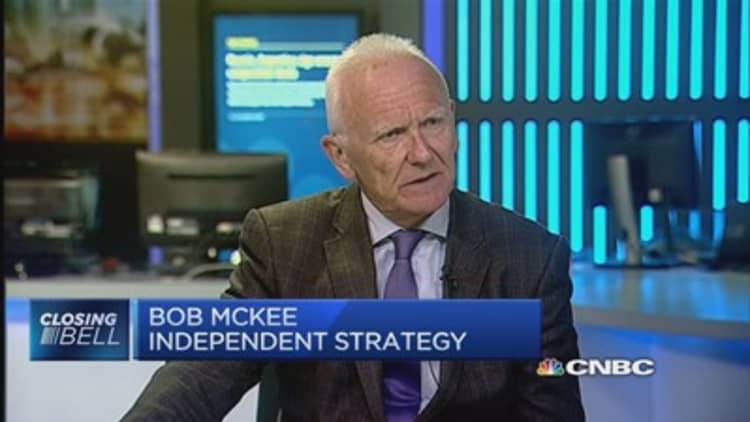
Just one day ahead of a crucial meeting of euro zone finance ministers, Greek Prime Minister Alexis Tsipras met with German Chancellor Angela Merkel to discuss Greece's ongoing solvency crisis.
At the meeting in Brussels, Tsipras called for faster progress towards a reform-for cash deal with Greece's bailout supervisors, according to Reuters, which cited a "Greek official."
The conversation – which was on the sidelines of a European Union (EU) summit to discuss the region's migrant crisis -- came ahead of Friday's crucial Eurogroup meeting of euro zone finance ministers, where Greece's progress in its reform pledges will be top of the agenda.
Greece's leftwing government is reluctant to impose reforms that entail more austerity, but the organizations overseeing the country's bailouts -- the International Monetary Fund (IMF), European Central Bank (ECB) and European Commission -- have refused to release a last tranche of aid until concrete reforms are in place.
Read MoreGreece facing 'Lehman moment' as debt costs soar
Germany, the biggest contributor to Greece's bailout, has been particularly keen to avoid showing Greece the money before it commits to completing its bailout program, which is now due to end in June.
High hopes
Hopes are high that Friday's Eurogroup meeting will result in agreement between Greece and its creditors. But there is also the risk of disappointment – particularly as some of the main players have played down the chances of a deal.
Greek Finance Minister, Yanis Varoufakis, told reporters earlier this week that there was "convergence" with creditors, but a deal would not necessarily come Friday.
Read MoreECB staff mull plansto curtail bank funding
"There will be a deal, a comprehensive agreement," Varoufakis told reporters in Athens, Reuters reported. "But this does not mean that there will be an agreement at Friday's Eurogroup".
Meanwhile, Germany's Finance Minister, Wolfgang Schaeuble, said he was sceptical the meeting will lead to a solution.
Markets watching
Investors are keeping a close eye on the meeting, however. In the last week, Greece's borrowing costs have spiked and its banking stocks fallen on the back of fears that the country is about to default on its debt repayments to the IMF and ECB.
It came as the Greek government ordered local state bodies to transfer their idle cash reserves into the country's central bank in a bid to cover its funding needs.
The move raised eyebrows among economists who have been wondering how much longer Greece can pay its domestic and international bills.
"Greece remains at the forefront of the markets mind, with one of the major questions being when exactly will the country run out of cash," a note from Rabobank's rate strategy team said Thursday.
They said Greece could "hold out" until at least the end of May before having to choose between external creditor payments and politically unavoidable domestic payments. But whether the ECB was willing to keep on extending emergency liquidity assistance (ELA) to Greek lenders was another matter, they added.
As such, Rabobank said a deal Friday was unlikely.
"This simply reinforces the point that a resolution to the Greek crisis is very unlikely at the 24th April informal Eurogroup meeting or the formal one in Brussels on 11th May," the note said. "The other factor to consider is that the ECB may be unwilling to let things drag on for as long as the cash position implies."
Follow us on Twitter: @CNBCWorld


